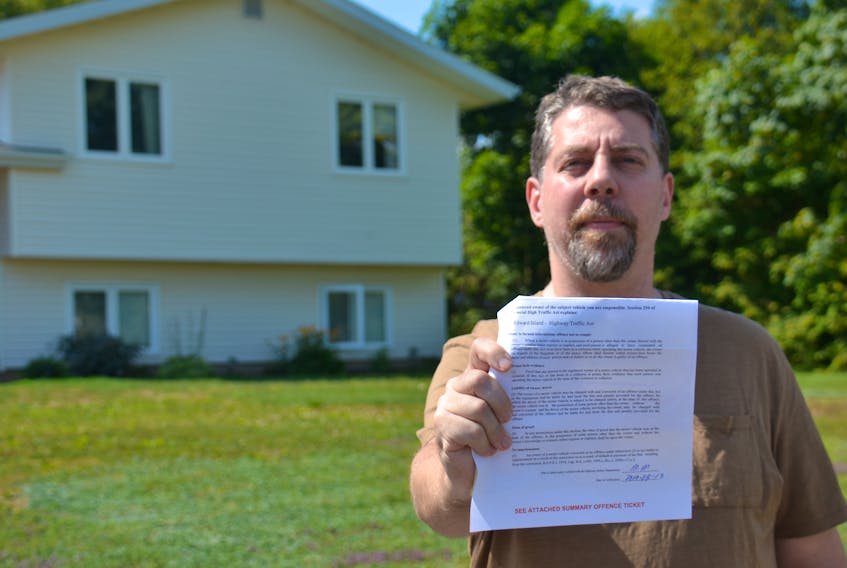CHARLOTTETOWN, P.E.I. — A local engineer says the use of high-tech cameras by police to collect driver license plate data raises serious concerns about surveillance and privacy.
Last week Josh Biggley received a summons in the mail from the Charlottetown Police Services indicating his vehicle registration had expired. The ticket included a photo of the back of his vehicle, clearly showing his license plate, and said his vehicle had been photographed on Aug. 10.
Biggley readily admits he neglected to renew his vehicle registration. But he believes the use of vehicle mounted cameras, known as automated license plate readers, constitutes an indiscriminate collection of personal information.
Charlottetown police have been using the vehicle-mounted cameras for over a year. The cameras pick up all nearby vehicle license plate data through a reflective coating on the plates.
Biggley said the mass collection of drivers licensing data is used on a presumptive basis by police.
"We are protected from unreasonable search and seizure, even though we don't call it that in Canada," Biggley said.
“At this point I've simply been told that I'm guilty of an offence through the police department. The judicial system has not been involved yet. At this point, I'm still considered innocent until I'm proven guilty."
Biggley said he does not object to receiving reminders from Access P.E.I. indicating his registration was up for renewal, as is done in Ontario and B.C. But he said he is concerned about the sharing of driver registration information by Access P.E.I. with law enforcement.
"Using this ALPR technology, they are mass collecting, not just vehicles on the road, it is any license plate that happens to pass through the field of vision on the cameras,” Biggley said.
“It does feel a little Orwellian.”
"We're very fortunate to have this technology. It's been used in ways, in large part, to save people's lives and in a number of different cases to recover stolen vehicles. It is a tool that allows us to be more efficient."
-Charlottetown Police Deputy Chief Brad McConnell
Biggley said he plans to file a complaint on the use of the automated license plate readers with the P.E.I. information and privacy commissioner. He also said he would be challenging the ticket on the same basis.
But Charlottetown Police Deputy Chief Brad McConnell said it is common for vehicle registration data, including information about the vehicle, to be shared with law enforcement in other jurisdictions.
"P.E.I. shares that same motor vehicle data to the Canadian Police Information Centre, which is shared all over Canada," McConnell said, referring to a national law enforcement database.
Charlottetown Police currently has two vehicles mounted with the ALPR cameras, as well as 18 fixed cameras using the technology in locations throughout the city. The city has had a contract with a Vigilant Solutions Canada for the use of the data collection software for over a year. The software and cameras were purchased by the city for $76,000 earlier this year.
McConnell said the data collected by the ALPR cameras is sent to a central server in Charlottetown that is not connected to other agencies. The license plate data collected from the cameras is held on that server for 14 days. However, if a vehicle is found to be in violation, or is found on another ‘hotlist,’ the data is kept for three months. Vehicle registration data is refreshed on a daily basis.
"We're very fortunate to have this technology. It's been used in ways, in large part, to save people's lives and in a number of different cases to recover stolen vehicles," McConnell said.
"It is a tool that allows us to be more efficient."









